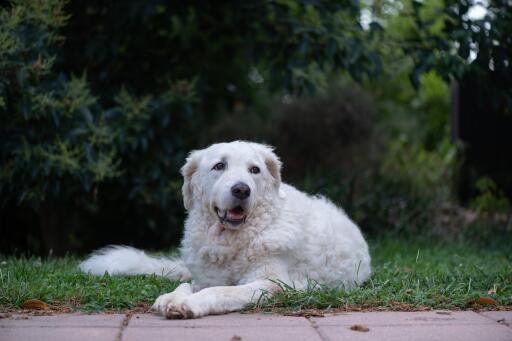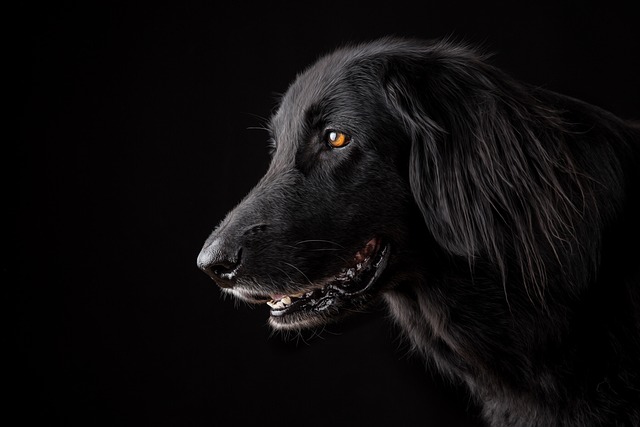
It's a crucial decision to select the best dog. There are many different types of dogs, and the right one will depend on many factors. Breeds vary in size, personality, and grooming needs. Before you make a decision, be sure to consult a licensed vet. These are some breeds you should consider if your first dog owner is not yet licensed.
Golden Retrievers
When you first get a Golden Retriever, it is important to be patient with them. They are protective of their family and have a strong instinct to protect their owners. They are gentle with children and will not take their toys away from you if you remove them carefully. They shouldn't be left alone for too long.
An adult or senior golden retriever is a great choice for your first dog. These dogs are no longer prone to the puppy-like behavior they used to have, but they still require daily walks. They also need less exercise than their younger siblings. Senior goldens are a great choice if you want a dog that doesn't require too much work.
Goldens require minimal training but can learn obedience training quickly. After being properly trained, Goldens will be able to name things and place their toys. Emotionally maturing can take time. Most dogs reach maturity between two and three years. These dogs may want to have fun and play, despite their intelligence.
Cavaliers
Because of their gentle and affectionate nature, Cavaliers can be a wonderful choice for new owners. They are also easy to train, require very little exercise, and are extremely social. They are also very sweet and require very little grooming. Continue reading to find out why Cavaliers make the perfect dog for first-time owners.

Although Cavaliers are known as lap dogs, they can have some heart problems as they age. They can get along with children, however, and are very social. As a result, they are good choices for families with children. They are also one among the most economical breeds, making them great for first-time homeowners.
Cavaliers are not only cute, they are intelligent and very energetic. Although they can grow to large sizes, they shed less than larger breeds. The Cavalier König Charles Spaniel is an excellent choice for those who are just starting to own pets. This dog can be as small as 18 pounds, which makes it perfect for smaller apartments.
Bichon Frise
Bichon frises are energetic, small dogs. They are great with children, and they get along well together with other pets. They are easy to train, and can adapt to any lifestyle. They are able to do with moderate exercise every day and good grooming. Bichons have curly, short coats, so they will need occasional brushing.

Bichon frises have been deemed hypoallergenic. Due to their high levels of shed hair, it is important that you schedule frequent grooming appointments with your groomer and keep close contact. The shed hair should be removed daily, or it can get caught in the undercoat and cause painful mats.
Bichon puppies can be affectionate and friendly so make sure you prepare your home well. Before bringing your pet home make sure that you have spayed and neutered them.
FAQ
What kind should I feed my dog?
A healthy diet is essential for your dog.
There are many protein-rich foods, including chicken, beef (fish), eggs, and dairy.
Other foods high-carbohydrate include fruits, vegetables (including bread), cereals, pasta, potatoes, rice, and beans.
Lean meats, poultry and fish are all low in fat, as well as nuts, seeds, whole grains and whole grains.
Before giving your dog different food types, always consult your veterinarian.
Are there any signs my dog may be ill?
Many symptoms can indicate that your dog may be sick. The following symptoms can be seen:
-
Vomiting
-
Diarrhea
-
Lethargy
-
Fever
-
Weight loss
-
Appetite decrease
-
Coughing
-
Difficulty breathing
-
Bleeding from behind the nose
-
You can find blood in your stool and urine
These are just some examples. Your vet will tell you what to be on the lookout for.
How often should I brush my dog?
It is essential to groom your dog. Grooming your dog helps to maintain his coat, and it keeps him clean.
At least twice per week, your dog should be brushed. Brush your dog after every meal.
Brushing your dog's fur will remove loose hair and dirt. Brushing his teeth will make him appear healthier.
Ear infections can be prevented by brushing his ears.
Statistics
- It's among a relatively few companies that provide policies with a full (100%) coverage option, meaning you are not responsible for any co-payment of bills. (money.com)
- * Monthly costs are for a 1-year-old female mixed-breed dog and a male domestic shorthair cat less than a year old, respectively, in excellent health residing in Texas, with a $500 annual deductible, $5,000 annual benefit limit, and 90% reimbursement rate. (usnews.com)
- It is estimated that the average cost per year of owning a cat or dog is about $1,000. (sspca.org)
- In fact, according to ASPCA, first-year expenses can sum up to nearly $2,000. (petplay.com)
- Here's a sobering reality: when you add up vaccinations, health exams, heartworm medications, litter, collars and leashes, food, and grooming, you can expect a bill of at least $1,000 a year, according to SSPCA. (bustle.com)
External Links
How To
How to teach your cat to use the litterbox
While litter boxes can help reduce your pet's waste, they may not work well for cats. They may find it difficult for cats to use, as they might end up getting too comfortable or wrong.
Here are some tips to help you ensure your cat uses the litterbox with the greatest success.
-
The box should have enough room for your cat to stand straight inside the box without having them crouch.
-
It's best to place it where your cat would go outside.
-
You can give your cat water when he needs it. He will be less stressed about using the litter box if he is well hydrated.
-
Avoid making loud or sudden movements when you first introduce the cat to the box, especially if your cat has been outside for a while.
-
Once he gets used to the idea, reward him with praise whenever he uses the box correctly. You might consider including treats in your reward, but these should be only given to him after he has done his business.
-
Your cat shouldn't be forced to use the box.
-
Be patient! It can take several months before your cat is able to use the box consistently.
-
You should contact your veterinarian immediately if you observe any changes in your cat’s behavior such as aggression towards other people or animals. This could be a sign of a serious condition such as a kidney disease or infection in the urinary tract.
-
Don't forget to clean up after your cat, including the area surrounding the box.